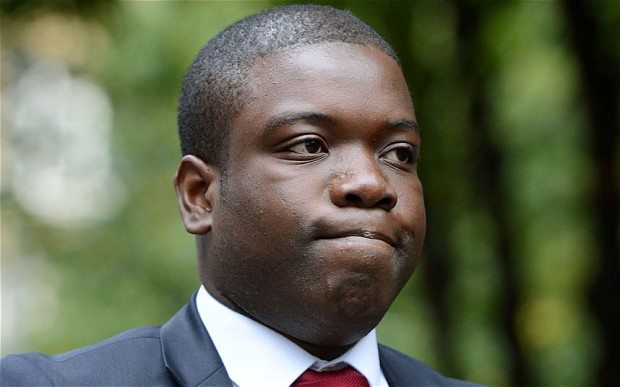The investment banker accused of almost sinking Swiss bank UBS with illicit dealing, denied on Monday he was a rogue trader and said other members of his team knew about his “off book” activities, reports The Guardian.
Adoboli, 32, who is alleged to have cost the bank £1.4bn, said he ran up major losses only after giving in to pressure from senior colleagues to change his market position. Giving evidence at Southwark crown court for a second day, Adoboli, who repeatedly broke down on Friday as he described UBS as his “family”, was close to tears again when asked by his barrister, Paul Garlick QC, about the term “rogue trader”. After a pause he replied: “It doesn’t feel fair.”
The court has heard how Adoboli ran a series of trades which were not properly hedged – balanced by deals which would mitigate losses if the market moved unfavourably. These were initially very profitable, with the proceeds kept in a side account Adoboli called his “umbrella”. But during the summer of 2011 Adoboli’s non-hedged deals went badly wrong, at one point racking up potential liabilities to UBS of £7.5bn. The losses began, Adoboli told the court today, when senior traders persuaded him to switch his generally gloomy view of prospects for exchange traded funds (ETFs), his area of work, to a more bullish one, only for the market to head consistently downward. “My market view in July and August was guided, sometimes under considerable pressure, by senior traders around me,” Adoboli said.
“At that point I should have held on to my conviction of fear of the market. At that very point I changed my position, that is why I don’t believe I was a rogue trader. I wish I was a rogue trader. I wish I hadn’t listened.”
Earlier, Garlick took Adoboli through a series of printouts of electronic chat conversations from March last year which, the defence argues, show Adoboli’s colleagues on the ETF desk, fellow senior trader John Hughes and junior colleagues Simon Taylor and Christophe Bertrand, had full knowledge of his umbrella account, so named as it was intended to protect them from a rainy day of heavy trading losses.
“We were all using the mechanism in various ways,” Adoboli said of the umbrella system. Taylor and Bertrand used it “in exactly the same way I did” when he and Hughes were both away, Adoboli added. One private chat between Hughes and Taylor showed them discussing the balance of the umbrella account, at that point in profit by $19.6m (£12.2m), the court heard.
Adoboli was arrested in September 2011 after walking out of the UBS office and writing an email to senior staff outlining his losses, the court has heard. Sasha Wass QC, prosecuting, portrayed Adoboli as a reckless and solitary gambler whose losses grew exponentially as he staked ever greater sums trying to claw them back. He was motivated, she argued, by a desire to boost his bonus, which over five years went from £10,000 to £250,000.
Adoboli told the court there was no apparent direct connection between the money a trader made for UBS and their annual bonus. Asked by Garlick how bonuses were calculated, he said: “It’s a difficult question to answer. I don’t believe that any of us really understood how bonuses were decided.”
The Ghanaian-born banker joined UBS as a graduate trainee in 2003 after completing his degree at Nottingham University, moving to the ETF desk in 2006. He denies two counts of fraud and four counts of false accounting between October 2008 and last September.


